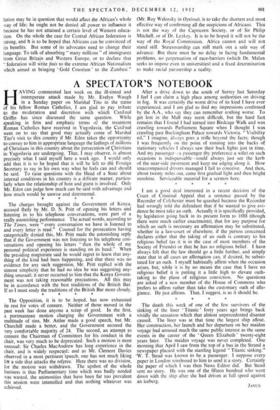I am a good deal interested in a recent decision
of the Court of Criminal Appeal that a sentence passed by the Recorder of Colchester must be quashed because the Recorder had wrongly told the defendant that if he wanted to give evi- dence he must take an oath. Actually it is specifically provided, by legislation going back in its present form to 1888 (though there were much earlier enactments), that for any purpose for which an oath is necessary an affirmation may be substituted, whether in a law-court or elsewhere, if the person concerned declares either that the taking of an oath is contrary to his religious belief (as it is in the case of most members of the Society of Friends) or that he has no religious belief. I have always felt that the law should go a little further, and simply state that in all cases an affirmation can, if desired, be substi- tuted for an oath. I myself habitually affirm when the occasion arises, but, while it is by no means the case that I have no religious belief it is putting it a little high to elevate oath- taking to the plane of religious conviction. No questions are asked of a new member of the House of Commons who Prefers to affirm rather than take the customary oath of alle- giance. He just affirms. That, I suggest, is as it should be.


































 Previous page
Previous page